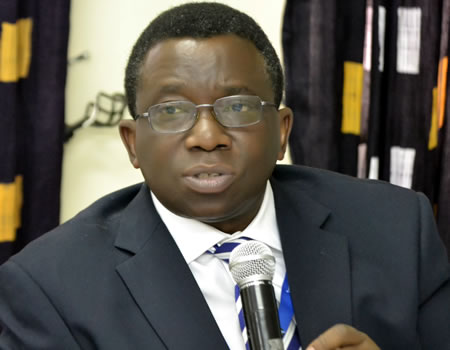HEALTH Minister, Professor Isaac Adewole, has launched Nigeria’s first National Action Plan for Health Security (NAPHS) to ensure that Nigeria can contribute significantly to the overall goal of improving national, regional and global health security.
Professor Adewole at the launch in Abuja stated that global epidemic will always threaten the safety and security of Nigerians and so the plan will ensure that Nigerians can be protected against any future epidemic threat.
Adewole, who reiterated the Federal Government’s commitment to protecting the health of her citizens, said ensuring this would require all stakeholders to work with Nigeria Centre for Disease Control to develop a clear plan to achieve this.
The minister said that Nigeria is steps closer to strengthening its health security capacity adding “We often emphasise that health security involves not only the health sector but all sectors working towards national security.”
He said: “Considering our large population and position in Africa as a whole, the successful implementation of the plan will contribute significantly to the overall goal of improving national, regional and global health security.
“It is not a matter of if but when a global epidemic will threaten the safety and security of our citizens. We need to be prepared to protect all Nigerians against future epidemic threats.
“This plan is a significant investment aimed at enhancing our preparedness and response strategy. Outbreaks in the last few years have reinforced the need to institute safeguards that will ensure that as a nation, we are better prepared at all times to deal swiftly and decisively with issues pertaining to health security.”
NCDC director-general, Dr. Chikwe Ihekweazu, lauded the government’s unwavering commitment to improving emergency preparedness and response in Nigeria, describing the launch of the NAPHS as a show of increased commitment to national health security.
World Health Organisation (WHO) director-general, Dr Tedros Adhanom Ghebreyesus, said that WHO remains committed to supporting the implementation of Nigeria’s NAPHS.
He added, “This is an encouraging progress. Ultimately, the best defense against outbreaks and other crisis is strong, resilient health systems based on people-centred primary care.”
Over the last few years, the country has experienced outbreaks of infectious diseases such as Lassa fever, cerebrospinal meningitis, Ebola, as well as a resurgence of yellow fever and monkeypox.
The current Ebola outbreak in the Democratic Republic of Congo has been described as the second largest outbreak of the particular strain, highlighting the need for regional and global preparedness.






